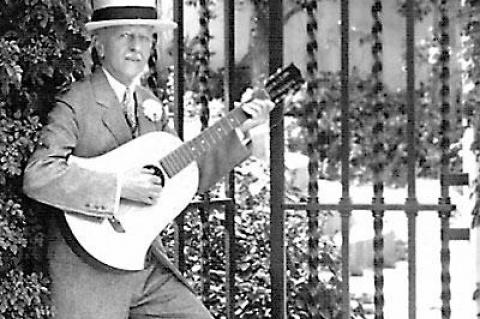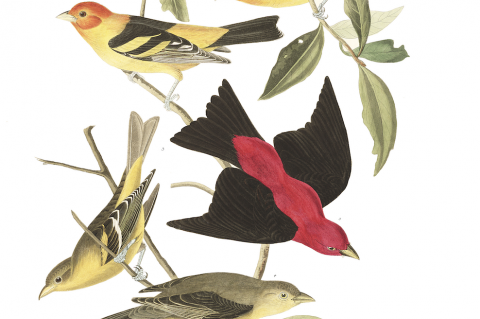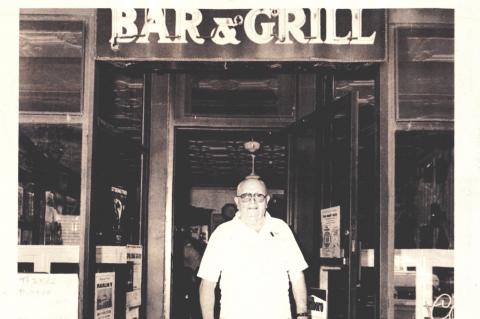In East Hampton, if you had a street named for you before the 20th century, odds were that you were an enslaver.
Opinion
Peak movie-going, for me, came in the late 1970s and early 1980s, when — a tangle-haired child of that unruly era — I was handed a 10-dollar bill and left to my own devices for entire weekends at a go.
A victory handed to a group of Napeague homeowners associations in the State Courts Appellate Division will almost surely have ripple effects elsewhere in East Hampton Town.
The position that a president or any other government official could avoid conviction simply by resigning is indefensible, both in terms of historical precedent and common sense.
A decent snowfall for a change brings thoughts of yesteryear’s less-than-safe outdoor activities.
 Guestwords: The Lily Pond Connection
Guestwords: The Lily Pond ConnectionA two-mile stretch of road between two ponds in East Hampton has provided Treasury secretaries for F.D.R. and four Republican presidents in the 20th century, and now a secretary of state for Joe Biden.
A majority of Republican senators have made it clear already that they plan to acquit the former president after his impeachment trial begins. They have been given cover in this by citing the nonsense claim that, after leaving the White House, ex-presidents cannot be prosecuted.
An emailed letter from Southampton Hospital addressed to “Dear Friends” says, in part, that while the hospital is beginning to see a decline in Covid-19 admissions, “we urge you to remain vigilant. . . .”
This has been an extremely gratifying week for a team of us doing work to learn about the history of slavery on the East End and share our research with others.
 The Shipwreck Rose: See the Tanager
The Shipwreck Rose: See the TanagerI’m that person who cannot see the rare bird on the branch, no matter how hard someone points.
All along, it has been difficult to accept at face value that the motive to carve out a new Wainscott village was the wind farm cable alone.
Families’ captive straits paired with their desperate hopes for their children had one professor comparing the cost of college to Big Pharma’s gouging of the ill.
It is easy enough to absent myself for apartment showings. Would that I could take the furniture with me. Since it must remain in all its dated glory, a stager will come in to “freshen it up.” But there are consequences.
This week, federal health officials may have confirmed something that has become increasingly clear as the pandemic drags on: Kids should be in classrooms.
Sag Harbor Village appears ready to hand Main Street and Long Wharf over to a private corporation to manage paid parking during the summer months in a major change taken without a trial run or enough public input before the contract stage.
The 1776 Commission’s “patriotic education” report apparently thinks we’ve been making too much of the country’s sins and too little of its virtues in our history courses.
A television news producer called the other day to ask about the Plain Sight Project, a joint effort to identify and document the enslaved people who lived on the East End from 1640 to 1830.
 The Shipwreck Rose: Days of Beer and Roses
The Shipwreck Rose: Days of Beer and RosesI think we need to talk about the depressing lack of a bar here in East Hampton.
 Gristmill: The Hick’s Lament
Gristmill: The Hick’s LamentI keep thinking about what that sensibly unaffiliated Down Easterner in the Senate, Angus King, said on “60 Minutes” the other night, about how those who raged at the Capitol have to be listened to, that they aren’t going away.
The newest strain of MAGA, the one that was evidenced at the Capitol, seems not only more contagious, but also immune to the vaccine of coalition that President Biden is attempting to inject into the body politic.
Perhaps the most remarkable thing about Kamala Harris becoming the first woman vice president in United States history is that it does not feel all that remarkable that a woman should occupy such a position. It is, of course.
More than two weeks have passed since the murderous insurrection at the United States Capitol, and, if anything, the events of Jan. 6 have grown more horrifying with the passage of time. The seditious co-conspirators must be expelled from Congress.
Oh well, forget about getting vaccinated. I called my doctor’s office the first day I was eligible, at 9 a.m. sharp, and they knew nothing. Then I called Southampton Hospital, and they too knew nothing.
Letting pets move around freely is a thing of the past, traffic being what it is and even the odd dog thief about.
Can we pause for a second to consider the fact that robots telephone us regularly to try to fleece us of our hard-earned cash?
Amid all the fluster about several schemes floated for changing the downtown East Hampton Village parking rules one important thing is missing — any sense of what the issue is in the first place.
The riot at the Capitol may have overshadowed the Georgia special election that elevated Jon Ossoff and Raphael Warnock to the Senate, but it’s too bad it did, because that unlikely turn of events nudged the federal government closer to the ability to actually do something.
A market-based strategy to mitigate climate change is embodied in a bill now before Congress called the Energy Innovation and Carbon Dividend Act. The expiring Congress did not pass it, but it will be reintroduced in the new one, where it may have better prospects.
By persisting in the stolen-election lie, Lee Zeldin took the side of the pro-Trump armed attackers and betrayed United States democracy.
There are perhaps as many ways to look at the rampage at the Capitol as there were participants, but one thing is indisputable: It was a planned attempt for one branch of federal government to take over another.
